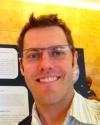In this course we'll study the Universe in three big steps. First, we'll study astronomy of our ancestors: the Moon, eclipses, and trying to understand the movement of the planets through the skies. Then we'll jump forward centuries and see how the telescope revolutionized our ideas about the heavens, leading eventually to an understanding that we are part of the stars. Finally, we will explore modern astronomy, and discover the ways in which distant galaxies show us the past, and the future, of our universe.
This course is typically taught face-to-face, so although we'll be online we look forward to using breakout rooms and facilitating discussions in section. If you prefer an asynchronous experience, please consider the excellent Astro 101B or Astro 150E. All of these courses are open to everyone, and there are no prerequisites. We do not assume or require that you have a scientific or mathematical background. That being said, we will expect you to do some algebra. You will need to know how to use a scientific calculator and office software (e.g. Word or Powerpoint, or Google Docs). If you do not have access to these tools, please make a point of speaking with your instructor or TAs as soon as possible.
Things to Know
- Attend and participate: Lectures are the primary source of information in the course, while sections are designed to build your skills and give you an opportunity for peer and one-on-one instruction. If you do not plan on attending class one of our asychronous astronomy courses might be a better fit for you.
- No Textbook: You may wish to supplement your learning with a textbook, and we recommend the open license textbook Astronomy (free to view or download) by Andrew Fraknoi, David Morrison, and Sidney Wolff.
- Late assignments: Canvas will automatically assign a zero to work that is turned in even a second late, but we're not worried about seconds. In general we expect your work will be turned in so we can grade it in a timely fashion. However, note the availability dates on quizzes and follow them carefully.
- Academic honesty: Cheating and/or plagiarism is not tolerated. Except on the weekly quizzes, you are allowed and encouraged to work with other members of the class, but all of your assignments must be in your own words with citations to other people's work. The examples of academic misconduct in the statement of Student Academic Responsibility are useful for understanding how to avoid plagiarism. In addition:
- We use SimCheck to automatically produce originality reports for assignments in this class. The SimCheck Report will indicate the amount of original text in your work and whether all material that you quoted, paraphrased, summarized, or used from another source is appropriately referenced. We expect that your SimCheck originality score is less than 25%. About SimCheck plagiarism detection.
- If we suspect academic misconduct then we will withhold your grade and report the suspected activity to Community Standards & Student Conduct.
- The University of Washington Department of Astronomy does not tolerate harassment of any kind: Harassment is any behavior by an individual or group that contributes to a hostile, intimidating, unwelcoming, and/or inaccessible work environment. Anyone can experience harassment. If you believe that you are being harassed, the Astronomy Department's Statement on Harassment lists resources where you can find support.
- We Follow UW Policies: We recommend reviewing the example "Syllabus Language" on the UW Syllabus Guidelines and Resources page. It may sound a bit dull, but actually it's a concise explanation of your rights and expectations.
Accommodations & Support
Support is available to discuss safety and well-being 24 hours / 7 days a week through SafeCampus. Accommodations for temporary health conditions and permanent disabilities are organized through UW DRS.
Washington state law requires that UW develop a policy for accommodation of student absences or significant hardship due to reasons of faith or conscience, or for organized religious activities. The UW’s policy, including more information about how to request an accommodation, is available at Religious Accommodations Policy. Accommodations must be requested within the first two weeks of this course using the Religious Accommodations Request form.
Assignments
Quizzes -- 35% of your grade
Each lesson culminates in a written quiz, which will be available for 24-hours (midnight-11:59pm Seattle time). Please read About the Quizzes for lots of details about what to expect, what we expect, and grading. We will drop the lowest score.
Labs -- 35% of your grade
Discussions -- 20% of your grade
Discussions take place in sections. Grading is based on a pre-section assignment as well as participation during section. About the Discussions
Section Participation -- 10% of your grade
Based on the breakout room reports--submit one in each half (unit) of the couse.
Grading
Your final grade is determined by transforming your overall percentage to the 4.0 scale. A 96% course average guarantees a 4.0, and a percentage score of at least 60% is required for credit, unless you have chosen Satisfactory/Not-Satisfactory grading; in which case you will need a 2.0 or better to receive credit.
